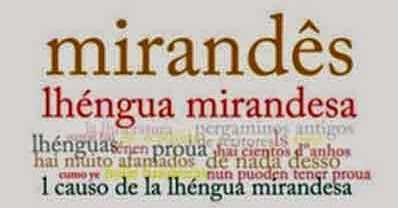Current status:
The Mirandese language, the second official language of Portugal, has its roots in the linguistic transformations that took place in the Iberian Peninsula during and after the Roman period. It is a language of Astur-Leonese origin, belonging to the group of Western Ibero-Romance languages, and has a unique history linked to the geography and isolation of the Lands of Miranda. The Mirandese language was transmitted mainly orally, from generation to generation. Although there was little written documentation in the early centuries, the strong cultural identity of the Mirandese people allowed its preservation as a living language in rural communities, associated with traditions such as dances, music, and local festivities.
Partner’s view:
After a period of promoting the Mirandese Language through mainly local initiatives, there have been no significant developments in its preservation in recent years.
Challenge:
How might the Mirandese Language be projected in the encounter between its rich cultural heritage and post-modernity?
| Anexo | Tamanho |
|---|---|
| 2_Case-Design_Lingua-Language_ENG_sem-facilitador.pdf (153.32 KB) | 153.32 KB |




